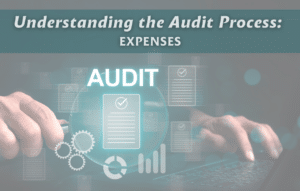In a cooperative response to the request from the Small Business Administration (SBA) for comments on its recent release of Forms 3509 and 3510, Loan Necessity Questionnaires, (see related post) the American Institute of Certified Public Accountants (AICPA) joined representatives of 81 other national organizations to express concerns about the new forms, as well as policy and operational issues identified in complying with the instructions. These organizations represent millions of small businesses, borrowers and lenders participating in the Payroll Protection Program (PPP), enacted under the CARES Act.
In an effort to “communicate the full extent of our concerns on behalf of all the many organizations that have jointly come together as one voice on this critical issue,” the coalition sent two letters: one to Congressional leadership, including House speaker Nancy Pelosi, Senate majority leader Mitch McConnell, House minority leader Kevin McCarthy, and Senate minority Charles Schumer, and a second letter to the Treasury and SBA, addressed to Treasury Secretary Steve Mnuchin and SBA Administrator Jovita Carranza.
The organizations write, “we are concerned that the questionnaires introduce a confusing and burdensome process for both borrowers and lenders, and we fear that it could lead the agencies to inappropriately question thousands of qualified PPP loans made to struggling small businesses.” Under the requirements in question, PPP borrowers with loans of $2 million or greater must complete the new Loan Necessity Questionnaire and provide extensive documentation supporting their responses.
The letters note that the organizations are fully supportive of appropriate review and oversight of PPP loans. However, the coalition endorses the continued usage of the current loan forgiveness applications (Forms 3508, 3508EZ and 3508S) for this purpose, arguing that existing forms provide information sufficient for “the agencies to examine, in great detail and prior to the approval of loan forgiveness, relevant facts to ensure that the PPP loan funds were used in the way Congress intended.”
The letters recommend that if the SBA needs more information to determine the necessity or suitability of a PPP loan that they require the borrower to provide a narrative statement and any documentation the borrower believes is appropriate [emphasis added] to demonstrate that the loan was critical to support its ongoing operations.
Additionally, the signatories note further policy and operational concerns, which are detailed in the letters and excerpted below.
- These questions focus on the wrong timeframe. The new questionnaires seek data including gross revenue comparisons between the second quarter of 2020 and the second quarter of 2019 to determine how the borrower has fared during the pandemic. However, the borrower was asked to certify in good faith that economic uncertainty made the loan necessary at the time of the borrower’s application for the loan. The letters note, “the law required that the borrower self-assess to the best of its ability with the information it had at the time. Any circumstances that happened after the certification was made and throughout the pandemic should have no bearing on evaluating the borrower’s good faith statement at the time it made the certification.”
- Additional information requested is outside of the scope of evaluating a borrower’s attestation. The new forms new forms ask for liquidity and revenue data beyond what is needed for the intended purpose. The signers write, “We are also surprised at inquiries that could veer into the personal finances of small business owners, even seeking exact dollar amounts of all cash on hand with supporting documentation. The CARES Act did not include a means-based test, revenue reduction test, liquidity test, or any other metric to assess financial standing in order to assign prioritization of PPP loans to certain borrowers over others.”
- Requiring this data appears to unfairly signal bias against PPP borrowers that managed to remain profitable during the pandemic. The letter notes, “For many borrowers, it was the PPP loan that provided the means by which they could withstand the economic uncertainty they were facing.” The writers emphasize that “reporting steady or increased revenue with healthy liquidity and continuing employment, for that borrower and its employees” indicates that the Paycheck Protection Program “was successful in meeting its goal to help sustain the economy.”
- Other elements of the questionnaire require data that should not have any bearing on evaluating a borrower’s good-faith attestation of uncertain economic conditions that necessitate a PPP loan to maintain operations. The signatories note that they “are concerned that the borrower’s answers may lead to a misinformed analysis by the agencies. …statements that focus on whether closures or changes in operations were either mandatory or voluntary, and details on which governmental jurisdiction mandated the closures… should not correlate to a borrower’s up-front attestation of need for a PPP loan.”
Finally, the letters express concerns that the new questionnaires create unreasonable compliance requirements. The writers note, “These deadlines are impractical and compliance by borrowers and lenders would be virtually impossible in most cases. The nine-page questionnaire demands a level and type of reporting never previously required from borrowers by statute or in in any process in PPP lending thus far.”
Due to these significant findings, the signatories to the letter request that the Treasury and SBA “consider temporarily suspending use of these questionnaires while we collectively address these issues and work together toward a better solution.”
The impact of these letters is yet to be seen, but it would not be surprising to find that the strength of 82 separate organizations representing millions of borrowers and lenders would push the SBA to either rescind the new forms or make some modifications in these requirements. Given the “dribble-out” effort that has come from the SBA and the Treasury department on PPP matters over the many months since passage of the CARES Act on March 27, 2020, there may be cause to believe that further changes to the new proposed Loan Necessity Questionnaires is forthcoming.
In light of these developments, it would may be prudent for borrowers with PPP loans of $2 million or more to delay applying for loan forgiveness until the SBA addresses the concerns set forth in these letters.
Should you have questions or comments, please contact Bob Grossman or Don Johnston at 412-338-9300.
Related Posts:
- SBA Issues Notice Relating to Its Assessment of Economic Uncertainty
- SBA Clarifies Filing Date(s) for PPP Loan Forgiveness
- Simpler Forgiveness Process for PPP Loans Under $50,000
- New Interim Final Rule Provides More PPP Loan Forgiveness Clarification
- More PPP FAQs Released by the SBA
- SBA Issues New PPP Loan Forgiveness FAQs
- New SBA Interim Final Rule Offers Further Guidance on PPP Loan Forgiveness
- Simpler PPP Forgiveness Application & Updated Program Guidance Released by SBA
- More PPP Changes and Enhancements on the Way
- SBA & Treasury Announce Forthcoming Updates to PPP Rules
- PPP Flexibility Act Signed Into Law
- SBA Offers Additional PPP Loan Forgiveness Information
- Paycheck Protection Program Loan Forgiveness Application Released
- Further SBA Guidance Extends Safe Harbor Deadline for PPP Loans
- Paycheck Protection Program Loans – Round 2
- FAQs Issued to Further Clarify Guidance on PPP Loans
- SBA Issues Additional Guidance for Paycheck Protection Program Loans
- Paycheck Protection Program Loans (PPP) Available Under the CARES Act








